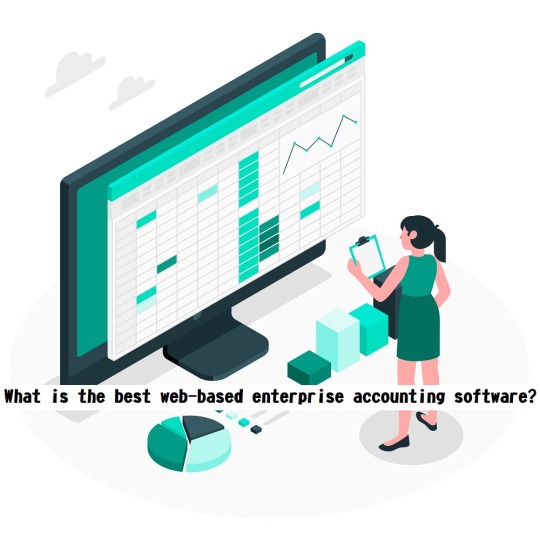#Popular CRM Software
Explore tagged Tumblr posts
Text
Crucial Components of a Superior Automotive Industry CRM Software
In the realm of today's fiercely contested automotive sector, the presence of a stalwart CRM (Customer Relationship Management) system is imperative, far surpassing mere convenience. A CRM solution, meticulously crafted for the automotive sphere, has the potential to markedly amplify client engagement, streamline procedural workflows, and catalyze sales propulsion. This discourse will explore the quintessential attributes of a paramount CRM application, pivotal in revolutionizing the automotive industry's stance on customer relationship stewardship.
Exhaustive Lead Oversight Mechanism
A salient characteristic of any CRM application of merit is a proficient lead oversight mechanism. This system should encompass not merely the acquisition of leads but also the detailed tracing of their trajectory. From the inaugural interaction to the consummation of a sale, every exchange with a prospective client must be meticulously documented and scrutinized. Such thoroughness permits an enhanced comprehension of consumer behavior, empowering sales contingents to customize their strategies for each client, thereby augmenting conversion rates. Elements like lead valuation and segmentation are instrumental in stratifying efforts, ensuring the most auspicious leads are given due priority.
Sophisticated Consumer Data Dissection
In the automotive domain's race for supremacy, a CRM system fortified with sophisticated data dissection tools is vital. This functionality aids in the deconstruction of consumer data, unearthing tendencies, predilections, and latent opportunities. By sifting through historical acquisitions, service chronicles, and client dialogues, dealerships can concoct bespoke marketing campaigns and propositions that resonate uniquely with each consumer. This caliber of customization nurtures allegiance and bolsters client retention.
Flawless Synergy with Pre-existing Frameworks
An exemplary CRM application for the automotive industry should amalgamate flawlessly with pre-existing infrastructures, encompassing inventory oversight, financial software, and digital marketing instruments. Integration ensures cross-departmental access to contemporaneous information, fostering collaboration and efficacy. This comprehensive approach facilitates a more fluid workflow, diminishing error probabilities and augmenting overall productivity.
Mobile Operability
In today's digital era, mobile operability is a fundamental facet of any CRM application. Sales emissaries and overseers often necessitate access to client information and task execution whilst mobile. A CRM system congenial with mobile devices enables users to peruse and amend client data, schedule engagements, and pursue leads from any locale, assuring that no opportunity slips by.
Stalwart Consumer Assistance and Services
Lastly, a CRM system of distinction should proffer stalwart consumer assistance and services. This encompasses regular software updates, training for dealership personnel, and a responsive consumer service. Persistent support ensures the software remains attuned to the evolving requisites of the automotive industry and that users can fully harness its capabilities.
In summation, a CRM system of excellence for the automotive industry should embody these five indispensable features: an exhaustive lead oversight mechanism, sophisticated consumer data dissection, flawless synergy with pre-existing frameworks, mobile operability, and stalwart consumer assistance and services. By adopting a CRM solution that meets these criteria, automotive dealerships can elevate their customer engagement, refine operational processes, and foster sales with greater efficacy.
0 notes
Text
Cloud Computing: Definition, Benefits, Types, and Real-World Applications
In the fast-changing digital world, companies require software that matches their specific ways of working, aims and what their customers require. That’s when you need custom software development services. Custom software is made just for your organization, so it is more flexible, scalable and efficient than generic software.
What does Custom Software Development mean?
Custom software development means making, deploying and maintaining software that is tailored to a specific user, company or task. It designs custom Software Development Services: Solutions Made Just for Your Business to meet specific business needs, which off-the-shelf software usually cannot do.
The main advantages of custom software development are listed below.
1. Personalized Fit
Custom software is built to address the specific needs of your business. Everything is designed to fit your workflow, whether you need it for customers, internal tasks or industry-specific functions.
2. Scalability
When your business expands, your software can also expand. You can add more features, users and integrations as needed without being bound by strict licensing rules.
3. Increased Efficiency
Use tools that are designed to work well with your processes. Custom software usually automates tasks, cuts down on repetition and helps people work more efficiently.
4. Better Integration
Many companies rely on different tools and platforms. You can have custom software made to work smoothly with your CRMs, ERPs and third-party APIs.
5. Improved Security
You can set up security measures more effectively in a custom solution. It is particularly important for industries that handle confidential information, such as finance, healthcare or legal services.
Types of Custom Software Solutions That Are Popular
CRM Systems
Inventory and Order Management
Custom-made ERP Solutions
Mobile and Web Apps
eCommerce Platforms
AI and Data Analytics Tools
SaaS Products
The Process of Custom Development
Requirement Analysis
Being aware of your business goals, what users require and the difficulties you face in running the business.
Design & Architecture
Designing a software architecture that can grow, is safe and fits your requirements.
Development & Testing
Writing code that is easy to maintain and testing for errors, speed and compatibility.
Deployment and Support
Making the software available and offering support and updates over time.
What Makes Niotechone a Good Choice?
Our team at Niotechone focuses on providing custom software that helps businesses grow. Our team of experts works with you throughout the process, from the initial idea to the final deployment, to make sure the product is what you require.
Successful experience in various industries
Agile development is the process used.
Support after the launch and options for scaling
Affordable rates and different ways to work together
Final Thoughts
Creating custom software is not only about making an app; it’s about building a tool that helps your business grow. A customized solution can give you the advantage you require in the busy digital market, no matter if you are a startup or an enterprise.
#software development company#development company software#software design and development services#software development services#custom software development outsourcing#outsource custom software development#software development and services#custom software development companies#custom software development#custom software development agency#custom software development firms#software development custom software development#custom software design companies#custom software#custom application development#custom mobile application development#custom mobile software development#custom software development services#custom healthcare software development company#bespoke software development service#custom software solution#custom software outsourcing#outsourcing custom software#application development outsourcing#healthcare software development
2 notes
·
View notes
Text
The Rise of Cloud-Based CRM Solutions: Why Businesses Are Making the Shift in 2025

Introduction: Cloud-based CRM systems are becoming increasingly popular in businesses across industries. The appeal lies in their scalability, cost-efficiency, and the flexibility they provide to businesses of all sizes. As we progress into 2025, cloud CRMs are helping companies streamline their operations and enhance customer interactions.
1. Scalability for Business Growth: Cloud CRMs allow businesses to grow without the limitations of traditional on-premise solutions. As your company expands, you can easily scale up your CRM infrastructure to accommodate more users, features, and integrations.
2. Enhanced Accessibility: Cloud CRMs break down geographical barriers by offering anytime, anywhere access to customer data. This ensures that teams, whether in the office, working remotely, or traveling, have access to the same information and can engage with customers in real-time.
3. Cost-Efficiency: Instead of making large upfront investments in infrastructure, cloud-based CRMs use a subscription model, which helps businesses save on hardware, software, and IT maintenance. This makes them an attractive option for companies looking to minimize overhead costs.
4. Security and Backup: Security is a top priority for cloud-based CRMs. These systems include robust features such as encryption and automatic backups to safeguard customer data. This reduces the risk of data loss due to unforeseen events.
Cloud-based CRMs offer a combination of flexibility, security, and scalability, which makes them an ideal solution for businesses looking to improve efficiency and customer experience. For more insights into CRM development and how it can transform your business, you can explore different CRM solutions here.
2 notes
·
View notes
Text
7 Best Digital Marketing Tools For Marketers

Digital marketing is extremely important to build your online presence and reach more audiences. Several agencies offer digital marketing services but today, innumerable best digital marketing tools are available to get the work done without paying to any agent. Though you can also opt for some of the best digital marketing services if you have a big budget.
List of the 7 best Digital Marketing tools for growth.
HubSpot
HubSpot has many tools that you can use at any stage to grow your business.
Under its free plan, it offers various features. You can set up popup forms, web forms, and live chat software for capturing leads. You can also send email marketing campaigns, analyse site visitors’ behaviour, and pipe all of your data into the free CRM.
The paid plans are amazing as things get sophisticated in them with advanced marketing automation. It is like an all-in-one solution starting from managing your social media and content to connecting with your leads and tracking emails.
HubSpot tool has several benefits such as growing your traffic, converting leads, providing ROI for inbound marketing campaigns, shortening deal cycles, and increasing close rates. You can do almost every digital marketing task with the help of this tool.
Google Analytics
Google Analytics is like the gold standard for website analytics. These days it is hard to perform as a digital marketer if you do not possess any level of Google Analytics expertise.
Firstly, Google Analytics can show you several useful pieces of information related to your website like who is visiting your website, from where are they arriving, and on which pages they stay the most. Moreover, you can set up many goals to track conversions, track events to learn about user engagement, and build an improved e-commerce setup.
If you��re thinking of investing in online advertisements and marketing, you will need to know how it is performing so that you can improve over time. Google Analytics is the best place to get that information without costing you anything. Yes, you heard that right, it is totally free!!
You can easily add Google Analytics to your website as well as integrate it with other systems. It allows you to see the status and performance of both paid and organic marketing efforts.
Ahrefs
Ahrefs, a comprehensive SEO tool that can help you boost your website traffic. They have around 150 million keyword data in the U.S.
Ahrefs is a great tool for competitive analysis through which you can easily see who is connecting to your competitors, their top pages, and much more. You can see their content rankings and, by using the Content Gap tool, you can identify key weaknesses of your content too.
Its Top Pages tool allows you to see which pages receive the most traffic, and also the amount of traffic that goes to your competitors’ sites.
Hootsuite
Hootsuite is one of the most popular SEO and digital marketing tools that help you simplify your strategy and gain the most benefits. If you are trying very hard to reach customers on social media and are still unsuccessful, Hootsuite can be your perfect partner. You can schedule posts, track engagements, and build a following through this tool.
The main reason behind its immense popularity is its ability to support several social platforms in one place. It can help you create, upload, and track posts, and monitor performance metrics while keeping an eye on relevant trending topics too.
It offers a 30-day free trial and after that monthly plans ranging from $30 to $600 based on the connected social networks and number of users.
Yoast
Yoast is an extremely SEO and digital marketing tool. It is a plugin that works with Gutenberg and Classic editor in WordPress. It helps you optimize your content to increase its visibility over search engines.
Yost plugin is free for WordPress but it also offers paid plans that depend on the number of sites you need to monitor. It gets updated constantly every two weeks to reflect Google’s algorithm, thus keeping you updated on your SEO. It helps you choose focus keywords, cornerstone content, individual content URLs, internal links, and backlinks. It also evaluates the page’s readability and provides it with a Flesch Reading Ease score.
Slack
Slack is one of the most favored communication services available in business nowadays. It functions in channels labeled for certain information so that business conversations do not get distracted or disconnected by tangents. It facilitates conversation and focuses on collaboration between teams and employees.
It is an excellent tool for digital networking and meeting others in the same space, along with giving you the freedom to enter or leave channels as required.
Proof
Proof connects to your CRM “Customer Relationship Management” or website and uses social proofs to boost conversions on your website. They implement social proof messaging (for example “Right now, 25 people are viewing this post”), reviews, and videos directed towards targeted customers after they visit your site. It is super easy to install as you just need to copy their pixels and paste them to your site.
Proof has two notification features- Live Visitor Count and Hot Streak that enhance customers’ perceptions of your brand and allows prospects to take a look at others’ feedback too. Additionally,
You can easily identify your visitors and analyze their journey throughout your site. This will help in optimizing your site design to gain more conversions.
Conclusion
Digital marketing is a necessity for businesses and there is not a single reason to ignore it in this modern world of digitization. All 7 digital marketing tools are extremely popular and can help your business grow without any hassle.
2 notes
·
View notes
Text
What is SaaS and How to Build a SaaS Platform
What is SaaS? SaaS, or Software as a Service, is a cloud-based software delivery model where applications are hosted online and accessed through the internet. Unlike traditional software that requires installation, SaaS applications run on web browsers, offering convenience and flexibility. The provider manages all technical aspects, including updates, maintenance, and security, while users pay a subscription fee for access.
SaaS is popular for its cost-effectiveness and scalability. Businesses use SaaS for tools like customer relationship management (CRM) systems, project management platforms, and communication solutions. Consumers also rely on SaaS for entertainment and personal productivity.
How to Build a SaaS Platform If you're wondering how to build a SaaS platform, here are the essential steps:
Define Your Purpose: Start by identifying a problem that your SaaS platform will address. Research your audience and focus on a specific niche.
Plan Features: List features that add value, such as easy navigation, integrations, and real-time collaboration. Scalability should also be a priority.
Select the Right Technology: Choose technologies like React for frontend development, Node.js or Python for backend, and cloud hosting platforms like AWS.
Create an MVP: Build a Minimum Viable Product to test your concept, gather feedback, and refine your platform.
Ensure Security: Implement strong encryption, secure authentication, and regular updates to protect user data.
By understanding what SaaS is and following these steps, you can build a successful SaaS platform that meets market needs.
2 notes
·
View notes
Text
Best Business Software Tools in 2024
The right software tools can help increase productivity, draft operations more efficiently and promote company growth in today's high-paced business environment. Whether you are a start-up or an existing enterprise the following business software is necessary to improve different areas of your business.
1. Project Management: ClickUp

It is a feature-laden project manager that lets you handle tasks, projects, and workflows of all types. Its ease of use and user-friendly interface, complimented with diverse dashboards cater to audiences between small teams and large organizations. Task assignments, time tracking, goal setting, and collaboration options allow you to stop hopping between spreadsheets and emails so your projects are complete efficiently.
2. CRM–– Zoho CRM
Zoho CRM — Your Intelligent Customer Relationships Management System. Among other features, it has lead management, sales automation, and analytics to make sales performance improve on a consistent streamline both administrative aspect as well as customer satisfaction. Due to its integration capabilities with other Zoho products, as well as most third-party applications, It has become a flexible option for businesses that are ready to supercharge their customer relationship management.
3. Accounting: Zoho Books

Zoho Books- The Best Accounting Software for Business Owners Invoicing, expense tracking and financial reporting are some of its features. You can also rest assured that your taxes are being handled correctly and always have the latest view of your financial health to help you manage your finances better.
4. HR Management: monday. com HR
It is a complete human resources management software that helps companies to better structure their workforce. This system provides with facilities like employee on boarding, performance tracking, payroll management etc. With the platform's ease of use, UI simplicity, and automation capabilities in HR processes that would otherwise take hours away from key HR initiatives.
5. Payroll: OnPay

OnPay is an excellent payroll software for businesses of all sizes. It is a cloud payroll software for businesses that ensures complete compliance and automation of top-class payroll calculations, tax filings & employee payments. Additionally, OnPay provides HR and benefits management tools, effectively providing a full-fledged employee pay management solution.
6. Point-of-Sale (POS): eHopper
Versatile Point of Sale Software for Businesses Up To Mid-Sized It offers services like Inventory management, sales tracking and customer management. This makes eHopper a perfect choice for businesses that intend to simplify their sales operations using an affordable and intuitive POS system.
7. Inventory Management: Cin7

While there are plenty of other inventory management systems available, Cin7 stands out as one of the most popular options for small to mid-size businesses (SMBs) looking to get their stock levels, orders and supply chain operations under control. These functionalities consist of real-time inventory monitoring, order processing and e-commerce platform integration. With the powerful feature set of Cin7, businesses can keep inventory at an optimal level and fulfill customer demands to the hilt.
8. Website Builder: Weebly
Weebly is the website builder that you can also use to build your site or blog. It has lots of customizable templates, drag-and-drop functionality, and e-commerce ready to go. With Weebly, you can create a professional website even if you are a tech noob and give your business the relevant online visibility it needs.
9. Recruiting: ZipRecruiter

ZipRecruiter: Popular rated job search app for businesses on board. They provide hiring solutions through features like job posting candidates filtering and tracking the application. AI-powered matching from ZipRecruiter surfaces more relevant candidates to businesses faster.
10. VPN: NordVPN
It is a secure, encrypted VPN application that will make sure that you and your business stay safe as you work with the web. It provides features of encrypted connections, threat protection and global server access as well. In this way, It guarantees secure data in companies and privacy on internet.
Conclusion
The business software tools a company uses are very important to increase productivity and power growth. The above-mentioned tools are some of the best & flexible according to the fact which can assist businesses for any sized groups and help them attain their desired objectives. Implementing these tools in your operations can also help speed up processes and lead to higher customer satisfaction, as well as allow you to be on top of the competition.
#business#business growth#innovation#startup#entrepreneur#100 days of productivity#project management#sales#payroll#hr management#hr software#hr services#ai#artificial intelligence#technology#tech#techinnovation
3 notes
·
View notes
Text
Java's Lasting Impact: A Deep Dive into Its Wide Range of Applications
Java programming stands as a towering pillar in the world of software development, known for its versatility, robustness, and extensive range of applications. Since its inception, Java has played a pivotal role in shaping the technology landscape. In this comprehensive guide, we will delve into the multifaceted world of Java programming, examining its wide-ranging applications, discussing its significance, and highlighting how ACTE Technologies can be your guiding light in mastering this dynamic language.

The Versatility of Java Programming:
Java programming is synonymous with adaptability. It's a language that transcends boundaries and finds applications across diverse domains. Here are some of the key areas where Java's versatility shines:
1. Web Development: Java has long been a favorite choice for web developers. Robust and scalable, it powers dynamic web applications, allowing developers to create interactive and feature-rich websites. Java-based web frameworks like Spring and JavaServer Faces (JSF) simplify the development of complex web applications.
2. Mobile App Development: The most widely used mobile operating system in the world, Android, mainly relies on Java for app development. Java's "write once, run anywhere" capability makes it an ideal choice for creating Android applications that run seamlessly on a wide range of devices.
3. Desktop Applications: Java's Swing and JavaFX libraries enable developers to craft cross-platform desktop applications with sophisticated graphical user interfaces (GUIs). This cross-platform compatibility ensures that your applications work on Windows, macOS, and Linux.
4. Enterprise Software: Java's strengths in scalability, security, and performance make it a preferred choice for developing enterprise-level applications. Customer Relationship Management (CRM) systems, Enterprise Resource Planning (ERP) software, and supply chain management solutions often rely on Java to deliver reliability and efficiency.
5. Game Development: Java isn't limited to business applications; it's also a contender in the world of gaming. Game developers use Java, along with libraries like LibGDX, to create both 2D and 3D games. The language's versatility allows game developers to target various platforms.
6. Big Data and Analytics: Java plays a significant role in the big data ecosystem. Popular frameworks like Apache Hadoop and Apache Spark utilize Java for processing and analyzing massive datasets. Its performance capabilities make it a natural fit for data-intensive tasks.
7. Internet of Things (IoT): Java's ability to run on embedded devices positions it well for IoT development. It is used to build applications for smart homes, wearable devices, and industrial automation systems, connecting the physical world to the digital realm.
8. Scientific and Research Applications: In scientific computing and research projects, Java's performance and libraries for data analysis make it a valuable tool. Researchers leverage Java to process and analyze data, simulate complex systems, and conduct experiments.
9. Cloud Computing: Java is a popular choice for building cloud-native applications and microservices. It is compatible with cloud platforms such as AWS, Azure, and Google Cloud, making it integral to cloud computing's growth.

Why Java Programming Matters:
Java programming's enduring significance in the tech industry can be attributed to several compelling reasons:
Platform Independence: Java's "write once, run anywhere" philosophy allows code to be executed on different platforms without modification. This portability enhances its versatility and cost-effectiveness.
Strong Ecosystem: Java boasts a rich ecosystem of libraries, frameworks, and tools that expedite development and provide solutions to a wide range of challenges. Developers can leverage these resources to streamline their projects.
Security: Java places a strong emphasis on security. Features like sandboxing and automatic memory management enhance the language's security profile, making it a reliable choice for building secure applications.
Community Support: Java enjoys the support of a vibrant and dedicated community of developers. This community actively contributes to its growth, ensuring that Java remains relevant, up-to-date, and in line with industry trends.
Job Opportunities: Proficiency in Java programming opens doors to a myriad of job opportunities in software development. It's a skill that is in high demand, making it a valuable asset in the tech job market.
Java programming is a dynamic and versatile language that finds applications in web and mobile development, enterprise software, IoT, big data, cloud computing, and much more. Its enduring relevance and the multitude of opportunities it offers in the tech industry make it a valuable asset in a developer's toolkit.
As you embark on your journey to master Java programming, consider ACTE Technologies as your trusted partner. Their comprehensive training programs, expert guidance, and hands-on experiences will equip you with the skills and knowledge needed to excel in the world of Java development.
Unlock the full potential of Java programming and propel your career to new heights with ACTE Technologies. Whether you're a novice or an experienced developer, there's always more to discover in the world of Java. Start your training journey today and be at the forefront of innovation and technology with Java programming.
8 notes
·
View notes
Text
Why Tour Operators Love helloGTX Travel CRM
Tour operators need effective solutions in today's fast-paced travel business to improve customer experiences, streamline operations, and stay ahead of the competition. GTX Travel CRM meets that need. It is a comprehensive travel software solution developed by Catabatic Technology customized to the unique requirements of travel businesses. We'll look into GTX's popularity among tour operators in this blog post, along with how it can completely change the way you run your travel agency.
1. Streamlined Operations
With Travel CRM, tour operators can streamline their day-to-day operations, from managing bookings and itineraries to handling customer inquiries and payments. The platform's intuitive interface and automation features make it easy to manage all aspects of your business from a single dashboard.
2. Enhanced Customer Experiences
GTX allows tour operators to provide personalized experiences to their customers, from customized itineraries to real-time updates and notifications. By understanding your customers' preferences and behavior, you can create tailored travel experiences that exceed their expectations.
3. Integrated Booking System
helloGTX Travel CRM Software comes with an integrated booking system that allows tour operators to manage bookings, reservations, and inventory in real time. Whether you're offering guided tours, hotel accommodations, or transportation services, it makes it easy to manage all aspects of your business from one platform.
4. Advanced Reporting and Analytics
With GTX's advanced reporting and analytics tools, tour operators can gain valuable insights into their business performance, customer behavior, and market trends. By analyzing this data, you can make informed decisions and optimize your operations for maximum efficiency and profitability.
5. Mobile Accessibility
It is fully mobile-responsive, allowing tour operators to manage their business on the go. Whether you're in the office, on the road, or out in the field, GTX offers a mobile app that anyone can access from any device with an internet connection, ensuring that you're always connected to your business.
6. Dedicated Customer Support
It provides dedicated customer support to help tour operators get the most out of the platform. Whether you need technical assistance, training, or advice on best practices, our team of experts is here to help you every step of the way.
Conclusion
In a competitive and rapidly evolving industry, tour operators need a reliable and efficient software solution to stay ahead of the curve. With Travel CRM, tour operators can streamline their operations, enhance customer experiences, and grow their business like never before. Discover why tour operators love helloGTX and revolutionize the way you manage your travel business today.
Call to Action
Ready to take your travel business to the next level? Schedule a demo and see how it can transform your operations, enhance customer experiences, and drive business growth.
Schedule a Demo Now
#travel software#best travel crm#best crm for small business#b2b travel software#crm company#crm development#travel crm with api#Travel CRM software#GTX travel CRM#helloGTX Travel CRM Software#travel agent in delhi#b2b travel agency
2 notes
·
View notes
Text
En 2023, estos son algunos de los principales tipos de software de gestión:
•Software de planificación de recursos empresariales (ERP):
Los sistemas ERP integran y automatizan procesos de negocio clave, como la gestión financiera, la cadena de suministro, el control de inventario y la gestión de recursos humanos. Estas soluciones pueden optimizar las operaciones y mejorar la toma de decisiones. Ejemplos populares incluyen SAP, Oracle y Microsoft Dynamics.
•Software de gestión de relaciones con clientes (CRM):
Los sistemas CRM ayudan a las empresas a gestionar y analizar las interacciones con sus clientes, mejorando la retención y fidelización de estos. Algunos de los CRM más populares son Salesforce, HubSpot y Zoho CRM.
•Software de gestión de proyectos (PM):
Estas soluciones permiten a las empresas planificar, organizar y monitorear proyectos, asignar recursos y evaluar el progreso. Algunos ejemplos notables incluyen Trello, Asana y Microsoft Project.
•Software de gestión de recursos humanos (HRM):
Los sistemas HRM facilitan la gestión del personal, la contratación, la capacitación y el seguimiento del rendimiento. Workday, BambooHR y Gusto son ejemplos de soluciones HRM populares.
•Software de gestión de la cadena de suministro (SCM):
Estas soluciones ayudan a las empresas a optimizar sus procesos de cadena de suministro, desde la adquisición y producción hasta la distribución y entrega. Algunos ejemplos de SCM incluyen JDA Software, Infor y BluJay Solutions.
•Software de inteligencia empresarial (BI) y análisis de datos:
Las soluciones BI permiten a las empresas recopilar, analizar y visualizar datos para obtener información valiosa y tomar decisiones informadas. Tableau, Microsoft Power BI y QlikView son ejemplos populares de software de BI.
•Software de gestión del conocimiento (KM):
Estas soluciones ayudan a las empresas a gestionar y compartir conocimientos e información entre los empleados, mejorando la colaboración y la innovación. Confluence, Notion y Microsoft SharePoint son ejemplos notables de software KM.
•Software de automatización de procesos robóticos (RPA):
El software RPA permite a las empresas automatizar tareas y procesos repetitivos, liberando tiempo y recursos humanos para actividades de mayor valor. UiPath, Automation Anywhere y Blue Prism son ejemplos de soluciones RPA populares.
•Software de gestión de la ciberseguridad:
Las soluciones de gestión de la ciberseguridad ayudan a proteger los datos y la infraestructura de las empresas de posibles amenazas cibernéticas y vulnerabilidades. Estas soluciones incluyen firewalls, sistemas de prevención de intrusiones y software de monitoreo de seguridad. Algunos ejemplos notables incluyen Norton, Kaspersky y Cisco.
•Software de colaboración y comunicación:
Estas herramientas facilitan la comunicación y la colaboración entre los empleados, tanto dentro como fuera de la empresa, mejorando la productividad y la eficiencia. Slack, Microsoft Teams y Google Workspace son ejemplos populares de software de colaboración y comunicación.
•Software de gestión de activos digitales (DAM):
Estas soluciones permiten a las empresas almacenar, organizar, buscar y compartir fácilmente activos digitales, como imágenes, videos y documentos. Ejemplos de software DAM incluyen Adobe Experience Manager, Widen Collective y Bynder.
•Software de gestión de la experiencia del cliente (CXM):
Estas herramientas ayudan a las empresas a analizar y optimizar la experiencia del cliente en todos los puntos de contacto, desde el marketing y las ventas hasta el soporte al cliente y las redes sociales. Ejemplos de software CXM incluyen Adobe Experience Cloud, Sitecore y Sprinklr.
3 notes
·
View notes
Text
Choosing the Right Online Market Research Tools for Your Business

Understanding your target market is crucial for the success of any business. With the abundance of online market research tools available, gathering valuable insights has become more accessible than ever. However, with so many options to choose from, selecting the right tools for your business can be overwhelming. To help navigate this process, let's explore some key considerations when choosing online market research tools.
Define Your Research Objectives: Before diving into selecting tools, it's essential to clearly define your research objectives. Are you looking to understand customer preferences, evaluate market trends, or measure brand perception? Clarifying your goals will guide you in selecting the most appropriate tools to achieve them.
Consider Your Budget: Online market research tools come in a range of price points, from free to premium subscriptions. Consider your budget constraints and weigh the features and capabilities offered by each tool against their cost. Remember, investing in quality research tools can yield significant returns in the form of valuable insights and informed decision-making.
Assess Data Accuracy and Reliability: Accuracy and reliability are paramount when it comes to market research. Look for tools that utilize robust methodologies and data sources to ensure the information gathered is trustworthy. Reading user reviews and testimonials can provide insights into the reliability of a tool's data.
Evaluate User-Friendliness and Accessibility: Choose tools that are intuitive and user-friendly, enabling you and your team to navigate them with ease. Accessibility across devices and platforms is also crucial, ensuring that you can access the tools whenever and wherever you need them. Consider whether the tool offers mobile apps or cloud-based solutions for added convenience.
Explore Features and Customization Options: Different research projects may require specific features and customization options. Evaluate whether the tools offer functionalities such as survey creation, data visualization, sentiment analysis, and demographic segmentation. Additionally, assess the level of customization available to tailor the research process to your unique business needs.
Look for Integration Capabilities: Integrating market research data with your existing business systems can streamline workflows and enhance decision-making processes. Prioritize tools that offer integration capabilities with popular platforms such as CRM systems, email marketing software, and analytics tools. Seamless integration can facilitate the seamless flow of insights across your organization.
Seek Support and Training Resources: Even the most user-friendly tools may require some learning curve. Look for providers that offer comprehensive support resources, including tutorials, documentation, and customer support channels. Training resources can empower you and your team to make the most of the tools and leverage their full potential.
Consider Scalability and Future Needs: As your business grows, so will your research needs. Choose tools that can scale alongside your business and accommodate evolving requirements. Assess whether the tools offer scalability in terms of data storage, user licenses, and advanced features to future-proof your investment.
In conclusion, selecting the right online market research tools for your business requires careful consideration of your objectives, budget, data accuracy, usability, features, integration capabilities, support resources, and scalability. By evaluating these factors thoughtfully, you can empower your business with actionable insights that drive growth and success in today's competitive market landscape.
To know more: online market research platform
panel management platform
Sample Management Platform
fraud detection and reporting tool
#market research#onlineresearch#samplemanagement#panelmanagement#communitypanel#datacollection#onlinesurvey#fraud detection#datainsights
2 notes
·
View notes
Text
Elevate Your Real Estate Game with the Right CRM Software
Choosing the right Real Estate CRM Management Software is like finding the perfect home for your business – it should fit seamlessly, make your life easier, and leave you with a sense of satisfaction. Let's explore the key features that will not only streamline your real estate operations but also evoke a sense of joy in managing your business.
1. User-Friendly Interface: Imagine walking into a beautifully designed home where everything is within reach and easy to navigate. Your CRM should offer an intuitive interface that feels like a welcoming space, making every task a breeze. A clutter-free dashboard is like a well-organized living room, allowing you to focus on what truly matters – your clients.
2. Customization Options: Just like a dream home reflects your personality, your CRM should adapt to your unique needs. Look for a software that allows easy customization – from contact fields to workflow processes. It should be like having the freedom to arrange furniture to suit your taste, ensuring your CRM aligns perfectly with your business style.
3. Seamless Integration: Imagine your CRM as the heart of your real estate ecosystem, effortlessly connecting with other tools and platforms. The ability to integrate with email, calendars, and marketing tools should be seamless, creating a cohesive environment where everything works together harmoniously. Think of it as having a smart home, where each device complements the others for a unified experience.
4. Mobile Accessibility: Picture being able to manage your real estate business from anywhere, just like having the freedom to explore your dream home from every angle. A CRM with robust mobile accessibility ensures you're not tied to a desk, letting you stay on top of your tasks and client interactions on the go.
5. Automated Workflows: Imagine having a personal assistant that takes care of repetitive tasks, allowing you to focus on building meaningful relationships. A CRM with automated workflows is like having that extra pair of hands, ensuring timely follow-ups, reminders, and updates – all without you lifting a finger.
6. Analytics and Reporting: Think of your CRM as a magic mirror that reflects your business insights. A robust analytics and reporting feature helps you understand your performance, identify trends, and make informed decisions. It's like having a crystal-clear view of your business landscape, enabling you to navigate with confidence.
7. Customer Support: Consider customer support as the friendly neighbor who's always there to lend a helping hand. Opt for a CRM provider that offers excellent customer support – responsive, knowledgeable, and ready to assist. It's like having a reliable neighbor who ensures that your real estate journey is smooth and stress-free.
In the world of real estate, your CRM is not just a tool; it's the foundation of your business success. By choosing a best crm management software with these key features, you're not just managing your operations – you're creating a space where your business can thrive, grow, and evoke positive emotions every step of the way.
#crm for startups#top crm software#popular crm software#best crm management software#crm software for real estate
0 notes
Text
Salon Management Software: The Key to Streamlining Your Salon Business
Salon management software has emerged as a game-changer, revolutionizing the way salons operate. This blog will delve into the essentials of salon management and explore the transformative role of salon POS software in streamlining business operations.

I. Understanding Salon Management:
Salon management involves overseeing the various aspects of a salon business, from appointment scheduling and inventory management to employee scheduling and customer relationship management. The goal is to create a seamless experience for both clients and salon staff.
II. The Importance of Salon Management Software:
Appointment Scheduling:
Efficiently manage appointments, reduce no-shows, and optimize staff schedules with the help of salon management software. Clients can book appointments online, and staff can access real-time schedules, enhancing overall workflow.
Inventory Management:
Keep track of products, manage stock levels, and streamline the ordering process. Salon management software helps avoid product shortages, reducing the risk of missed sales opportunities.
Customer Relationship Management (CRM):
Build lasting relationships with clients by utilizing CRM features. Personalized client profiles, appointment history, and automated reminders contribute to enhanced customer satisfaction and loyalty.
III. Salon POS Software: A Closer Look:
What is Salon POS Software?
Salon POS software, or Point of Sale software, is a specialized system designed to handle transactions and streamline the sales process in a salon. It combines the functionality of a cash register with advanced features tailored to the unique needs of the beauty industry.
Key Features of Salon POS Software:
Transaction Processing:
Facilitate quick and secure transactions, including cash, credit cards, and digital payments, providing convenience for both clients and staff.
Inventory Integration:
Seamlessly integrate with salon management software to ensure real-time updates on product availability and sales data.
Appointment Management:
Sync with the appointment scheduling system to unify the booking and payment processes, reducing wait times and enhancing the overall client experience.
Reporting and Analytics:
Generate comprehensive reports on sales, popular services, and inventory turnover, enabling informed decision-making for business growth.
IV. How Salon POS Software Streamlines Your Business:
Efficient Transactions:
Salon POS software speeds up the checkout process, minimizing waiting times and enhancing the overall customer experience.
Accurate Inventory Management:
Real-time updates on inventory levels and sales data help salon owners make informed decisions, preventing overstock or shortages.
Integrated Systems:
The seamless integration of salon POS software with management tools ensures a synchronized and efficient operation, reducing manual errors and increasing productivity.
Conclusion:
Salon management software, coupled with a robust POS system, is undeniably the key to streamlining your salon business. From optimizing appointments to managing inventory and enhancing customer relationships, these tools empower salon owners to focus on what they do best – providing exceptional beauty services while ensuring a smooth and efficient operation. Embrace the technological revolution in the beauty industry and watch your salon thrive.
#salon pos software#salon billing software#best salon software for small business#salon software in india#salon management software
2 notes
·
View notes
Text
In today's competitive business world, managing customer relationships is essential for success. This is where CRM software comes in, but with so many options available, how do you choose the right one for your small business? Our comprehensive guide covers everything you need to know, including the different types of CRM software, popular options for small businesses, and factors to consider when making your decision. https://www.aiospark.com/choosing-the-right-crm-software-for-your-small-business/?feed_id=397&_unique_id=65d1a6c4bc80a&utm_source=Tumblr&utm_medium=donavichi&utm_campaign=AIO_Bot #Marketing #65d1a6c4c06fc
2 notes
·
View notes
Text
What is the best web-based enterprise accounting software?

In the fast-paced and ever-evolving landscape of business, staying on top of your finances is crucial. As enterprises expand their operations, managing accounts efficiently becomes a daunting task. Thankfully, with the advent of technology, businesses now have access to a plethora of web-based enterprise accounting software options to streamline their financial processes. In this comprehensive guide, we will explore the ins and outs of web-based enterprise accounting software, helping you make an informed decision on the best solution for your business needs.
Understanding Web-Based Enterprise Accounting Software
Web-based enterprise accounting software, often referred to as cloud accounting software, is a digital solution that allows businesses to manage their financial activities online. Unlike traditional accounting systems that rely on on-premise software, web-based accounting tools operate in the cloud, offering users the flexibility to access their financial data from anywhere with an internet connection.
Advantages of Web-Based Enterprise Accounting Software
1. Accessibility
One of the primary advantages of web-based accounting software is accessibility. With data stored securely in the cloud, users can access their financial information anytime, anywhere. This proves especially beneficial for enterprises with multiple locations or remote teams, fostering collaboration and efficiency.
2. Cost Efficiency
Web-based accounting solutions often follow a subscription-based model, eliminating the need for costly upfront investments in software and hardware. This cost-effective approach makes it easier for businesses to scale their accounting infrastructure according to their needs without breaking the bank.
3. Real-Time Updates
In the dynamic world of business, real-time data is invaluable. Web-based accounting software provides instant updates, ensuring that users have access to the most recent financial information. This feature is crucial for making informed decisions and adapting to market changes promptly.
4. Automatic Updates and Maintenance
Gone are the days of manual software updates and maintenance. With web-based accounting solutions, updates are automatic, and maintenance is handled by the service provider. This frees up valuable time for businesses to focus on core operations rather than managing software updates.
Features to Look for in Web-Based Enterprise Accounting Software
1. User-Friendly Interface
A user-friendly interface is essential for ensuring that your team can navigate the software seamlessly. Look for solutions with intuitive dashboards and easy-to-understand features to minimize the learning curve for your staff.
2. Scalability
As your enterprise grows, so do your accounting needs. Choose a web-based accounting solution that can scale with your business, accommodating increased transaction volumes and additional users without compromising performance.
3. Integration Capabilities
Efficient accounting doesn't happen in isolation. Ensure that the web-based accounting software you choose integrates seamlessly with other essential business tools, such as CRM systems, project management software, and e-commerce platforms.
4. Security
The security of your financial data should be a top priority. Opt for web-based accounting software that employs robust encryption protocols and follows industry best practices for data protection. Additionally, check for features such as multi-factor authentication to add an extra layer of security.
Top Contenders in the Web-Based Enterprise Accounting Software Market
1. MargBooks
MargBooks Online is a India's popular online accounting solution known for its user-friendly interface and robust features. It offers a range of plans to suit businesses of all sizes and provides tools for invoicing, expense tracking, and financial reporting.
2. Xero
Xero is another cloud accounting software that caters to small and medium-sized enterprises. With features like bank reconciliation, inventory management, and payroll integration, Xero is a comprehensive solution for businesses looking to streamline their financial processes.
3. NetSuite
NetSuite, owned by Oracle, is a cloud-based ERP (Enterprise Resource Planning) solution that includes robust accounting functionalities. It is suitable for larger enterprises with complex financial needs and offers features such as financial planning, revenue recognition, and multi-currency support.
4. Zoho Books
Zoho Books is part of the Zoho suite of business applications and is designed for small and medium-sized enterprises. It provides features such as automated workflows, project billing, and collaborative client portals, making it a versatile choice for businesses with diverse needs.
Making the Right Choice for Your Business
Choosing the best web-based enterprise accounting software for your business requires careful consideration of your specific needs and objectives. Here are some steps to guide you through the decision-making process:
1. Assess Your Business Requirements
Start by identifying your business's specific accounting requirements. Consider factors such as the number of users, the complexity of your financial transactions, and the need for integration with other business applications.
2. Set a Budget
Determine a realistic budget for your accounting software. While web-based solutions often offer cost savings compared to traditional software, it's essential to choose a solution that aligns with your financial resources.
3. Explore Free Trials
Many web-based accounting software providers offer free trials of their platforms. Take advantage of these trials to explore the features and functionalities of different solutions before making a commitment.
4. Seek Recommendations and Reviews
Consult with other businesses in your industry or network to gather recommendations and insights. Additionally, read reviews from reputable sources to gain a better understanding of the user experiences with different accounting software options.
The Evolution of Web-Based Enterprise Accounting Software
As technology continues to advance, so does the landscape of web-based enterprise accounting software. The evolution of these platforms is driven by the ever-changing needs of businesses and the ongoing developments in cloud technology. Let's delve deeper into the evolving trends shaping the future of web-based accounting solutions.
1. Artificial Intelligence (AI) and Automation
The integration of artificial intelligence and automation is revolutionizing how businesses handle their financial processes. Modern web-based accounting software is incorporating AI algorithms to automate repetitive tasks, such as data entry and invoice categorization. This not only increases efficiency but also minimizes the risk of human error.
2. Enhanced Data Analytics
In the age of big data, the ability to derive meaningful insights from financial data is paramount. Advanced web-based accounting solutions are now equipped with powerful data analytics tools. These tools help businesses analyze trends, forecast future financial scenarios, and make data-driven decisions.
3. Mobile Accessibility
The shift towards mobile accessibility is a notable trend in web-based enterprise accounting software. Businesses are increasingly relying on mobile devices for day-to-day operations, and accounting software providers are responding by offering mobile-friendly applications. This allows users to manage their finances on the go, providing unparalleled flexibility.
4. Integration with E-Commerce Platforms
As e-commerce continues to thrive, businesses are looking for accounting solutions that seamlessly integrate with their online sales platforms. Modern web-based accounting software often includes features tailored for e-commerce, such as automated transaction reconciliation with online sales channels and inventory management.
5. Blockchain Technology
Blockchain technology is making waves in various industries, and accounting is no exception. Some web-based accounting solutions are exploring the integration of blockchain for enhanced security and transparency in financial transactions. This could revolutionize how businesses handle aspects like auditing and transaction verification.
Common Challenges and How to Overcome Them
While web-based enterprise accounting software offers numerous benefits, it's important to be aware of potential challenges and how to overcome them. Here are some common issues businesses may face:
1. Security Concerns
The sensitive nature of financial data raises concerns about security in the cloud. To address this, choose a web-based accounting solution that employs robust encryption protocols and complies with industry security standards. Additionally, educate your team about best practices for secure online behavior.
2. Connectivity Issues
Reliable internet connectivity is crucial for accessing web-based accounting software. In regions with unstable internet connections, businesses may face challenges in real-time collaboration and data accessibility. Consider implementing backup solutions for offline access or explore accounting software with offline capabilities.
3. Customization Needs
Every business has unique accounting requirements. Some businesses may find that certain web-based accounting solutions lack the level of customization they need. In such cases, explore platforms that offer extensive customization options or consider integrating additional specialized accounting tools.
4. Data Ownership and Control
Understanding the terms of service and data ownership is essential when using web-based accounting software. Ensure that the chosen platform allows you to retain control over your financial data and provides mechanisms for data export in case of migration to a different system.
Conclusion: Making the Right Choice for Long-Term Success
In the fast-paced world of business, the right web-based enterprise accounting software can be a game-changer. Whether you're a small startup or a large enterprise, the key is to stay informed about the latest advancements in accounting technology and align your choice with the long-term goals of your business.
As you navigate the vast landscape of web-based accounting solutions, remember that the best choice is the one that seamlessly integrates with your business processes, enhances efficiency, and adapts to the evolving needs of your enterprise. If you have any specific questions or need further guidance on a particular aspect of web-based accounting software, feel free to ask for more information!
Also read- Online billing and accounting software to manage your business
#Web-based accounting#Cloud software#Financial management#Enterprise solutions#accounting#software#billing#online billing software#technology#programming#erp#tech#drawings#illlustration#artwork#art style#sketchy#art#aspec#aromantic asexual#arospec#acespec#aroace#aro#bg3#astarion#shadowheart#gale dekarios#gale of waterdeep#karlach
2 notes
·
View notes
Text
Leadpages Review 2023 : Pros and Cons

Introduction
LeadPages is a powerful and highly respected platform when it comes to online marketing and website optimization. In this comprehensive LeadPages review, we’ll explore its features, usability, and potential for businesses looking to increase their online presence and conversion rates.
LeadPages offers an array of tools and functionality designed to help businesses and marketers create compelling landing pages, websites and pop-ups. With its user-friendly interface and plenty of templates, LeadPages enables users to design and launch professional and high-converting web assets without the need for extensive coding or design skills.
A major highlight of LeadPages is the focus on conversion rate optimization. The platform provides a suite of features aimed at user engagement, lead generation and sales growth. From customizable landing page templates to A/B testing, LeadPages equips users with the tools they need to continually refine and improve their online marketing campaigns.
Additionally, LeadPages integrates seamlessly with popular email marketing and CRM platforms, allowing users to streamline their lead management and customer relationship processes. The software’s analytics and reporting capabilities provide insight into your campaign performance, enabling data-driven decision-making and optimization.
Small businesses, entrepreneurs, and even larger enterprises find value in LeadPages because of its versatility and scalability. Whether you’re looking to create a simple landing page or an entire website, LeadPages can accommodate a variety of needs and goals. Its extensive library of templates caters to various industries and purposes, making it an excellent choice for a wide spectrum of users.
In this review, we’ll explore the features and functionality of LeadPages in detail, examining how it can benefit businesses of all sizes. From its drag-and-drop page builder to its advanced marketing and lead generation tools, we’ll uncover how LeadPages can be a valuable asset in your online marketing toolkit.
Leadpages Review: Overview
LeadPages is a comprehensive online marketing platform renowned for its versatility and functionality. It empowers businesses and marketers by providing a wide range of tools for website creation and conversion rate optimization.
With a user-friendly interface and an extensive template library, LeadPages simplifies the process of creating high-quality landing pages, websites and pop-ups, making it accessible to users of all skill levels. What sets LeadPages apart is its dedicated focus on increasing conversion rates It provides A/B testing, lead generation forms and seamlessly integrates with email marketing and CRM platforms. In this overview, we’ll explore how LeadPages can help businesses increase their online presence and drive results.
Try Leadpages For Free
What are Leadpages?
Leadpages is a versatile online marketing platform that caters to two primary sectors: website development and conversion rate optimization. When it comes to website creation, Leadpages empowers businesses and marketers to create professional and visually appealing landing pages, websites and pop-ups without the need for extensive coding or design skills. It offers a user-friendly interface and a huge library of customizable templates, making it an ideal choice for those looking to establish a strong online presence.
Leadpages, on the other hand, excel at conversion rate optimization. It offers various tools and features designed to increase user engagement, increase lead generation and increase sales. From A/B testing to lead capture forms, Leadpages equips users with resources to continually refine and improve their online marketing efforts.
Additionally, LeadPages integrates seamlessly with popular email marketing and CRM platforms, streamlining lead management and customer relationship processes. Its powerful analytics and reporting capabilities provide valuable insights into campaign performance, facilitating data-driven decision-making and campaign optimization.
This dual-sector approach sets LeadPages apart as a versatile and valuable platform, meeting the needs of businesses of all sizes. Whether you’re looking to build a single landing page or an entire website, LeadPages provides the tools and flexibility to help you efficiently achieve your online marketing goals.
View More
3 notes
·
View notes
Text
Best Online AMC Maintenance Software - Service CRM
The use of technology has revolutionized many industries, and the maintenance and management of aircraft is no exception. One innovative solution that has gained popularity in recent years is Online AMC Maintenance Software Service CRM. This software provides a comprehensive platform for tracking, scheduling, and managing aircraft maintenance, offering a streamlined approach to ensure optimal performance and safety. By digitizing and centralizing maintenance data, Service CRM eliminates the need for manual record-keeping and enables real-time access to crucial information.

#AMC Maintenance Software#AMC Management Software#AMC Software#Best Online AMC Service Management Software#service management software#Service CRM
2 notes
·
View notes